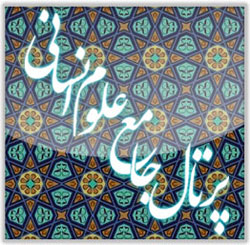Polis, Nihilism, and the Fate of Tragedy: An Analytical Study of the Works of Aeschylus, Sophocles, and Euripides
Keywords:
Polis, Cosmocentric Nihilism, Greek Tragedy, Aeschylus, Sophocles, EuripidesAbstract
Greek tragedy, as the most significant literary-dramatic form of ancient Greece, emerged from the lived experiences of citizens within the polis-centered Greek civilization and, at the same time, was theoretically and ideologically rooted in cosmos-centric nihilism. This influence persisted throughout the history of ancient Greece and remains evident. In fact, it can be argued that since the polis, as a particular social and political structure, played a fundamental role in Greek civilization, it also had crucial importance in the formation and development of tragedy. On the other hand, cosmos-centric nihilism also depicted in tragedy the crisis of meaning, determinism, and the human condition of helplessness against the forces of nature, the gods, and a blind fate. The analysis of the works of the three great tragedians of Greece demonstrates that the Greek way of thinking, their interpretation of humanity and the origin of the cosmos, and the prevailing worldview of cosmos-centrism had a profound impact on the emergence and evolution of tragedy. In this context, the heroes of tragedy wander between law and morality, the individual and the collective, will and determinism, and the quest for meaning versus the experience of meaninglessness. This study examines the simultaneous influence of two foundational factors—the socio-political structure of the polis and cosmos-centric nihilism—on the formation and development of Greek tragedy, with emphasis on the works of Aeschylus, Sophocles, and Euripides. Employing a descriptive-analytical approach and a comparative study of classical texts and contemporary sources, this research clarifies and interprets the impact of the polis and the nihilistic and cosmos-centered thought of the Greeks on tragedy. The findings of this study reveal that Greek tragedy reflects the belief that the destiny of humanity is deeply intertwined with the cosmos and its political manifestation, namely the polis. This worldview also illustrates the tension between human agency and the blind predetermined fate under the will of the gods, while representing the fundamental ontological, moral, and political crises arising from this tension.
Downloads
References
1. Algra K. The beginnings of cosmology: Cambridge University Press; 2006.
2. Zarshenas S. A journey through Western history: Tehran: Iran Publishing Institute; 2023.
3. Cartledge P. Ancient Greece: A very short introduction: Oxford University Press; 2011.
4. Arendt H. The human condition: Tehran: Ghoghnoos; 2010.
5. Razavizadeh SA, Abdolkarimi B. Nihilism and the new in Nietzsche's thought. Cultural Sociology Research. 2023;1:1-30.
6. Nouri Vaighan E, Shafiei E. Greek tragedy and the position of gods in Aristotle's thought. Analytical Philosophy. 2021;40:149-65.
7. Rokni M. Epistemological foundations and consequences of nihilism: University of Isfahan, Faculty of Humanities; 2021.
8. Panj-Tani M. Tragedy: The most popular literary genre for philosophers. A note on the book Philosophy of Tragedy. Hekmat va Ma'refat. 2019;5:79.
9. Moghimi Zanjani S. Polis-thinking and the conditions for the birth of political philosophy. Theoretical Political Studies. 2017;21:1-30.
10. Nazer E, Zahedi F. The conflict between law and tragic action in Aeschylus' tragedies. Fine Arts. 2016;20:5-16.
11. Chayut M. Tragedy as an expression of a liminal age in Western history. History of European Ideas. 2025.
12. Bowring F. In defense of tragedy: Bristol University Press Digital; 2025.
13. Bert O. Nihilism strikes with a vengeance. Discover the World's Research. 2024.
14. Osborne R. Sophocles and contemporary politics: Wiley-Blackwell; 2012. 373-88 p.
15. Leech C. Tragedy: Tehran: Nashr-e Markaz; 2012.
16. Heks G. The Cambridge companion to Greek and Roman theater: Cambridge University Press; 2009.
17. Goldmann L. The hidden God: Routledge & Kegan Paul; 1974.
18. Kitto HDF, Hall E. Greek tragedy: Routledge; 2011.
19. Aristotle. Poetics: Tehran: Amirkabir; 2024.
20. Kaufmann W. Hegel and the tragedy of ancient Greece: Tehran: Soroush; 1998. 129-14 p.
21. Blok JH. Becoming citizens: Some notes on the semantics of "citizen" in Archaic Greece and Classical Athens. Klio. 2005;87(1):7-40.
22. Hansen MH. Polis: An introduction to the ancient Greek city-state: Oxford University Press; 2006.
23. Craic E. Nihilism to quantum mechanics: Routledge Press; 1998.
24. Kirk GS, Raven JE, Schofield M. The Presocratic philosophers: A critical history with a selection of texts: Cambridge University Press; 1983.
25. Nik-Sirat A. A discourse on Logos. Philosophical-Theological Research. 2007;34:209-25.
26. Online Etymology Dictionary. Etymology of words 2001 [Available from: https://www.etymonline.com.
27. Jaeger W. Paideia: Tehran: Kharazmi; 1997.
28. Joyce R. Nihilism. In International encyclopedia of ethics. 2023.
29. Shaygan D. Asia versus the West: Tehran: Farzan Rooz; 1992.
30. Zarshenas S. Nihilism: Tehran: Andisheh Javan Institute; 2007.
31. Lupisella M. Pragmatism, cosmocentrism, and proportional consultation for communication with extraterrestrial intelligence: State University of New York Press; 2011. 225-34 p.
32. York M. Geocentric and cosmocentric spiritualities from a contemporary Western Pagan perspective. Journal of Astronist Studies. 2024:130-62.
33. Eagleton T. Sweet violence: The idea of the tragic: John Wiley & Sons; 2002.
34. Rancière J. Disagreement: Politics and philosophy: University of Minnesota Press; 1999.
35. Aeschylus. Complete works of Aeschylus: Tehran: Nashr-e Ney; 2022.
36. Brockett OG. History of the Theatre: Tehran: Morvarid Publishing; 2021.
37. Peterson M. Reason and religious belief: Tehran: Tarh-e No; 1998.
38. Sophocles. Theban plays: Tehran: Kharazmi; 1998.
Downloads
Published
Submitted
Revised
Accepted
Issue
Section
License
Copyright (c) 2025 سمیرا دائی عابدین; شهریار زرشناس (نویسنده)

This work is licensed under a Creative Commons Attribution-NonCommercial 4.0 International License.









